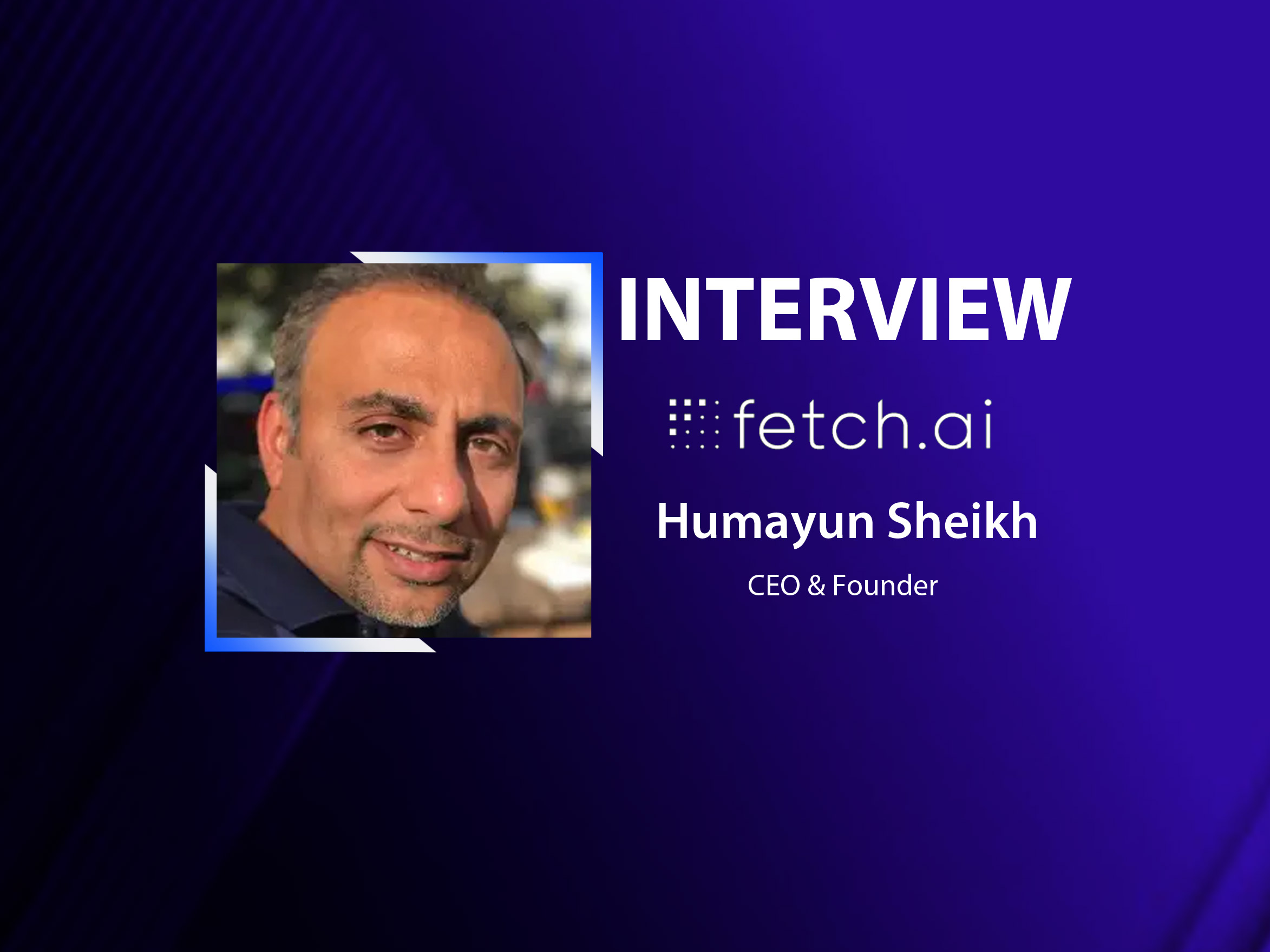Humayun Sheikh, CEO and Founder at Fetch.ai joins us for a quick chat to take us through Fetch.ai’s journey while discussing his thoughts on the impact of decentralized applications and their importance to creating a more inclusive financial world.
____
Can you tell us a little about yourself Humayun and the story behind Fetch.ai?
I am the CEO and Co-Founder of Fetch.ai, which is my fourth major venture. Prior to starting Fetch, I worked to bring an entirely new way of thinking to the steel recycling sector, building my company Metallis from start-up, to £40m in six years. I was also one of the first investors in DeepMind, which was eventually acquired by Google, and an early investor in PLUMgrid, the cloud solution provider acquired by VMWare. I am currently focused on bridging the gap between the blockchain and AI sector with Fetch.ai, an AI-powered blockchain that allows businesses and individuals to deploy Autonomous Economic Agents (AEA) for solving complex problems or coordination tasks.
Read More: GlobalFintechSeries Interview with Perry Steinberg, Chief Product Officer at AbacusNext
We’d love to hear about recent innovations and upcoming plans for the platform?
Currently, at Fetch.ai we are focusing on implementing our technology into real-life scenarios. Some of those innovations include a project with Warwick University, building a zero energy campus which means helping them produce enough renewable energy to meet its own annual energy consumption requirements. This solution utilizes multi-agent reinforcement learning to give a model-free, data-driven approach where AI agents represent key energy assets across the campus to learn the optimal control policy from real-world historical data. It has the potential to reduce daily energy costs by 13–18% on the student campus.
How have you seen the marketplace for Decentralized applications (in finance/fintech especially) evolve in recent years? What are your top short term predictions for this marketplace?
Success with decentralization will depend on interoperability, so if we’re looking at short term predictions, I believe a focus will be placed on systems that encourage and facilitate a simpler process for cross chain solutions.
Fetch is built on its own chain, but our purpose was not to build our own chain. Interoperability is the key to adoption here. Over time, the underlying technology will be abstracted away, with decentralised services being implemented, agnostic of the technology. Our aim is to provide machine learning, and multi-agent systems on a decentralised architecture. When we first started, transaction speeds were quite limited. But now you have agents for everybody, they’re doing multiple tasks all the time. So we built that with sharding and scalability. We are open to any chain, however, and any interoperability. If you want to deploy, you can put the framework on Fetch.ai and work with anybody.
In what ways have you seen Blockchain impact global finance trade and global fintech developments today?
International trade is a $25 trillion market that accounts for the exchange of capital, goods, and services across international borders or territories. Blockchain in trade finance facilitates unprecedented levels of connectivity while preserving the data ownership and privacy levels expected for financial transactions. This alone has the potential to grow the market and expand access to global markets.
We are actually implementing these ideals into our own project, Mettalex, one of the first major applications to be built using the Fetch.ai technology, co-developed with a group of leading Turkish steel makers and traders, including Baştuğ Metallurgy. Mettalex exists to provide a useful tool for commodities traders who are taking raw material and moving it along a production process, with price risk built into that timeline.
Currently, there are market failures inherent to today’s commodities market, such as front running, poor liquidity, price manipulation and loss of value in the form of margin calls. Mettalex aims to solve this by digitizing the trading of commodities using tokenization technology so that the use of smart contracts can automate various exchange processes, reducing the administrative burden and costs involved in the transaction.
This is just one example of how blockchain technology is impacting and will continue to impact global trade markets…
We’d love to hear your thoughts on DeFi and the global fintech marketplace – what are the top impacts?
The future will be all about bridging gaps. Whether it means bridging the gap between DeFi and CeFi or bridging the gap between AI and blockchain, or bridging the gap between traditional finance and digital assets. AI agents for example are our bread and butter, they are futuristic, but you need deployment. So when you combine that tech and blend it with the ideals of DeFi you get a product that has the ability to function in the real world. The tech we’re building for our autonomous agents works in traditional markets, DEX’s, and so on. We believe that will be a major trend that shapes the futures of all innovative industries.
As global fintech trends change and the market shifts due to business environments (and also Covid-19), what are your comments on the state of fintech in 2021 and beyond?
The global fintech market has infinite possibilities and the potential to build systems that work for everyone (from emerging markets to institutional investors). If we can master bridging the gaps that are currently acting as roadblocks to these possibilities we will see a more inclusive financial world.

Fetch.ai is a next-generation protocol, invented by world-leading AI experts, that enables a digital world where Autonomous Economic Agents can perform proactive economic activity.
Humayun Sheikh is the CEO and Founder at Fetch.ai.
